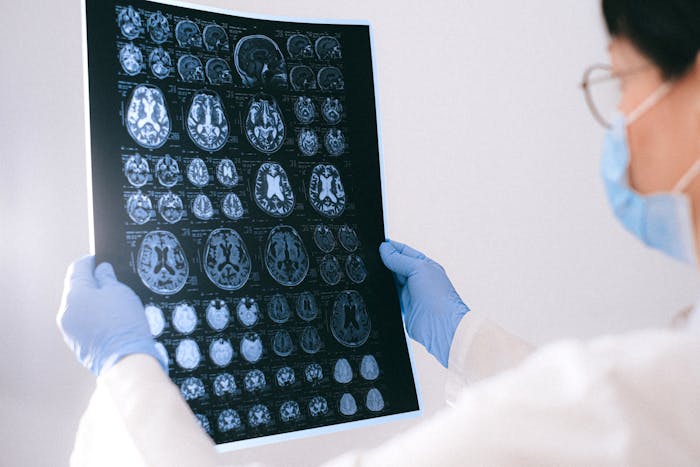Brain Damage From Drugs & Alcohol: Are The Effects Reversible?
When worrying about the damage caused by drugs and alcohol, the focus is generally on any effects on your liver, lungs or heart. However, any long-term substance can have an impact on the brain and how we think, feel, and behave.
The question you may have, though, is whether these effects are permanent or if the brain heals?
The answer to your question might be more hopeful than you’d expect, but it depends on the type of substance abuse and the extent of substance abuse. It is also largely dependent on what steps you have taken towards recovery.
How Alcohol & Drugs Affect the Brain

Alcohol
Alcohol is a depressant that affects the central nervous system. It acts in a way that disrupts the communication between brain cells and reduces the production of new neurons, especially in the hippocampus (the part of the brain responsible for memory). [1]
It affects balance, memory, speech and judgement, making it more difficult for these areas of the brain to function properly as normal.
Alcohol misuse can result in alcohol-induced blackouts, alcohol overdose, and alcohol use disorder. It can also lead to alcohol-related dementia and Wernicke-Korsakoff syndrome, which is often linked to vitamin B1 (thiamine) deficiency.
Common Drugs
Other substances cause your brain to change in varying ways:
- Cocaine and other stimulants flood the brain with dopamine, which overstimulates the reward system and damages nerve terminals.
- Methamphetamine can end up destroying dopamine and serotonin neurons, resulting in long-lasting mood amd memory issues.
- Cannabis affects areas of the brain that are involved in attention, learning, and memory.
- Opioids can impair oxygen flow to the brain through respiratory depression, particularly in overdose.
The mechanisms differ with different types of drugs; however, the results can be similar: changes to the brain structure, function and chemistry all affect thinking, memory, and emotional regulation. [2]
Is Brain Damage from Substance Use Reversible?

Generally, brain damage from substance use is reversible.
The brain has an incredible ability to adapt and repair itself, a process known as neuroplasticity. When you stop your substance use, the brain can begin to rewire and regenerate. [3]
Yet, the degree of brain recovery largely depends on:
- How long the substance was used for
- The amount and frequency of use
- Your age and overall health
- Whether there were any brain injuries from overdoses or accidents
Recovery from Alcohol-Related Brain Changes
Research shows that brain shrinkage from chronic alcohol use can begin to reverse within weeks of stopping. MRI studies have found:
- After 2–3 weeks: Brain volume begins to increase, and fluid-filled spaces (ventricles) shrink back towards normal size.
- After 1 month: Memory, attention, and coordination often show measurable improvement.
- Over several months to years: Many regions, including the cortex and cerebellum, continue to recover in size and function.
However, some damage may be permanent, particularly if alcohol-related dementia or Korsakoff syndrome has developed. In these cases, early diagnosis and treatment (such as thiamine supplements) are key to stopping further decline.
Recovery from Drug-Related Brain Changes
Cocaine and methamphetamine
Brain scans show that dopamine transporter levels, which are depleted in heavy stimulant users, can improve significantly within 12–18 months of abstinence from cocaine. Many cognitive functions, like attention and decision-making, also recover, although subtle deficits can persist.
Cannabis
Some studies suggest that brain changes linked to heavy cannabis use can improve after several months of abstinence. However, certain memory and attention issues may linger in long-term daily users or if the user is particularly young.
Opioids
If brain damage occurs from oxygen deprivation during overdose, recovery depends on the severity and duration of the hypoxic injury. While some people make partial or full recoveries, others may experience lasting difficulties with movement, speech, or memory.
Factors That Boost Brain Recovery

While time away from substances is the single most important factor, other steps can help the brain heal:
Sustained Abstinence
Every day without drugs or alcohol allows the brain to focus on repair rather than coping with ongoing damage.
Nutritional Support
Adequate vitamins and minerals, especially thiamine, omega-3 fatty acids, and antioxidants, can support neural repair.
Physical Activity
Regular exercise increases blood flow to the brain, stimulates neurogenesis, and improves mood.
Mental Stimulation
Learning new skills, reading, or doing puzzles can strengthen neural pathways and promote your cognitive recovery.
Therapeutic Support
Cognitive behavioural therapy (CBT), occupational therapy, and neurofeedback can help retrain the brain and improve daily functioning.
Sleep and Stress Management
Quality rest and techniques like mindfulness or meditation can enhance the brain’s ability to reorganise and heal.
When Damage is Permanent
Some brain changes, particularly those involving cell death, cannot be reversed. This is why early intervention is critical. For example:
- Untreated Wernicke’s encephalopathy can progress to Korsakoff syndrome, with 75% of people left with permanent memory loss. [4]
- Severe hypoxic injury from overdose may cause irreversible deficits, although rehabilitation can still improve quality of life.
Substance-related brain damage does not always mean it’s permanent. In many cases, the brain can repair itself remarkably well, and the earlier someone seeks help, the better the outcome.
Even when some effects are lasting, recovery strategies can dramatically improve daily functioning and well-being.
If you or someone you love is living with the effects of drugs or alcohol, it’s important to know that it’s never too late to start healing. With the right treatment, nutrition, and support, the brain can surprise you with its ability to bounce back.
Rehab Recovery offers confidential advice, detox referrals, and rehab placements tailored to your needs. Call us today on 0800 088 66 86 for free, no-obligation guidance, and take the first step towards recovery.
References
[1] https://pmc.ncbi.nlm.nih.gov/articles/PMC4568748/
[2] https://nida.nih.gov/publications/drugs-brains-behavior-science-addiction/drugs-brain




